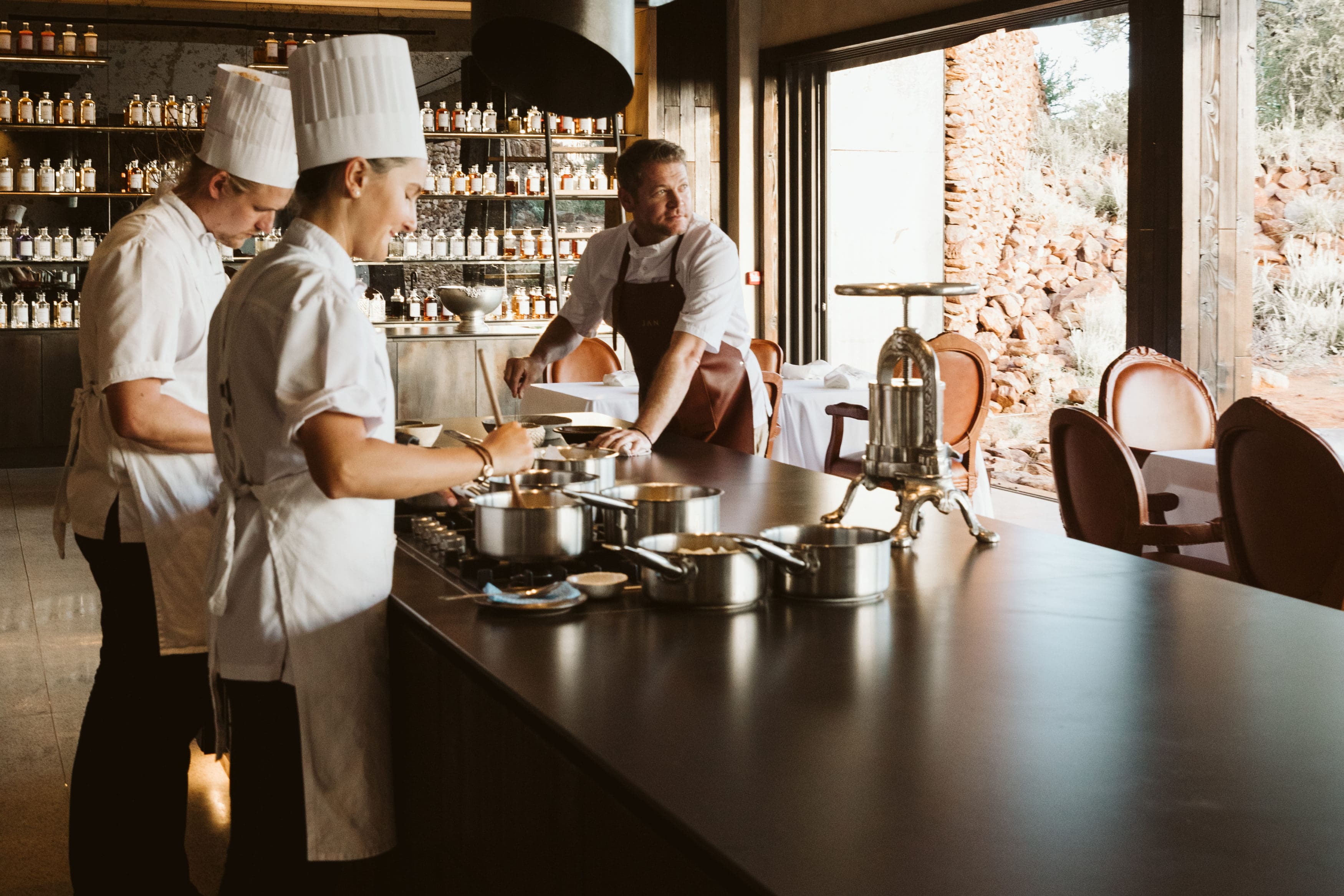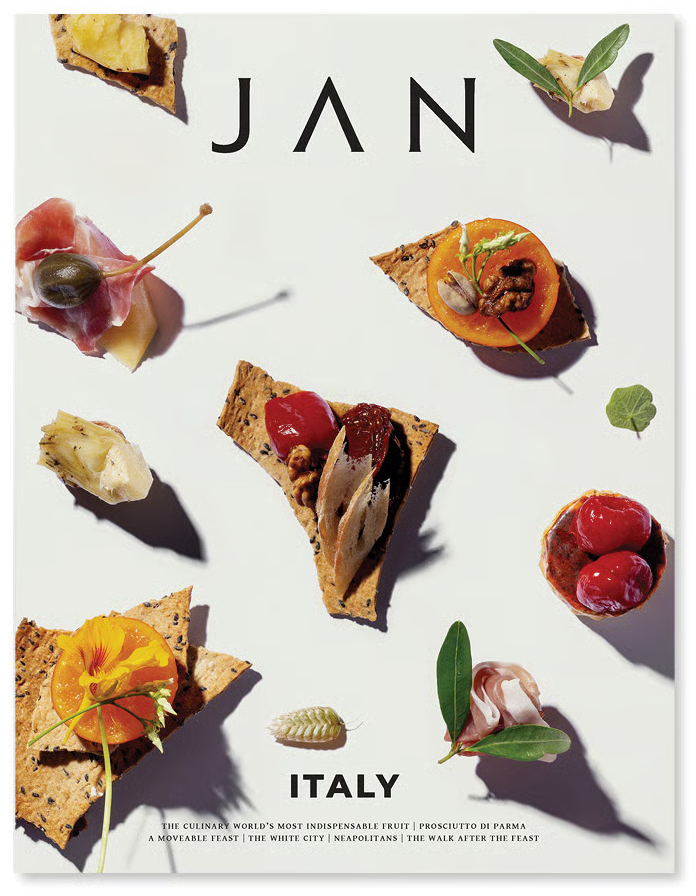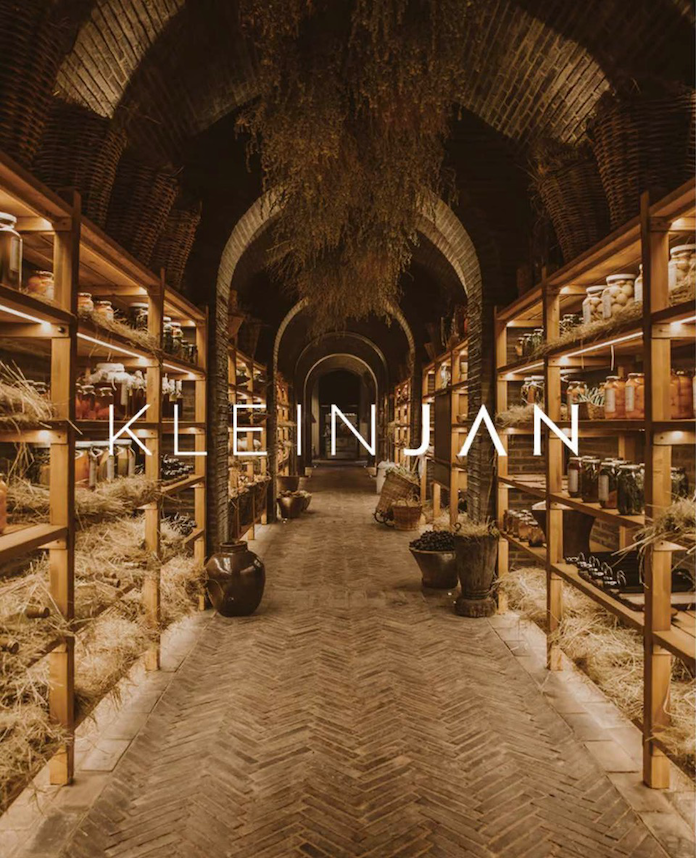HOW HEALTHY IS SOUTH AFRICA’S FOOD ECONOMY?
A conversation with Dawie Maree
Head of Agriculture Information and Marketing at FNB South Africa
To say that these are difficult times for the food and hospitality industry is an understatement. I’m intensely aware of how lucky I am to have launched a new restaurant during this time, and to have had the support that my team and I have had over the last year-and-a-half. But I’m also reminded every day of how many of my friends in the restaurant trade have not been as lucky. To get a better idea of the state of the South African food and hospitality industry – and how it has changed – I spoke to Dawie Maree, Head of Agriculture and Marketing at First National Bank South Africa, in the hope that his insights will help guide any of us who want to not only survive, but thrive in the new normal.

How healthy was South Africa’s food and hospitality industry before the COVID-19 pandemic?
The industry was very healthy pre-Covid. On the food side, we were food secure and self-sufficient for most products. Obviously, some products, like rice and wheat, will always be imported where we don’t produce enough. Since 2017/8 we’ve also become a net exporter of red meat, with exports to the Middle East, the island states and even the Far East. In terms of spend, the hospitality sector was also in a good space. Given, it was more on the back of foreign visitors, but local people also still spent, although very seasonally.
How did the food and hospitality industry change over the past year, because of the pandemic and/or other factors?
First of all, the food sector overall was fortunate to be classified as an essential service and sector. But some sub-industries within the sector were hit badly, specific vegetables, for instance, like lettuce. And then, a lot of changes in terms of how people source or buy food. Obviously, there was a lot of movement to shop online from retailers, and a lot of new start-ups on the online food buying front to source directly from farmers/suppliers. The hospitality sector was hit hard with the lockdowns and all the other limitations. It’s still on the back foot, and tourism hasn’t picked up yet.
Did people really spend less money on eating out since the start of the pandemic?
People spent less on eating out, if any, but more on eating in. When restaurants (and other entertainment) were closed, all that money went to food. We’ve seen it in the red meat industry especially, where we thought that prices would decline, but the opposite has happened. And then, as soon as restaurants opened up, the spend also increased (albeit slowly). Restaurants offering order-in options definitely benefitted more. We are herd animals, after all, and need that interaction. People satisfied that need of networking and interaction by “braaiing” more at home with people they knew and were comfortable with. Again, spend increased on that front.
After the hard lockdown was over, to what extent did the industry recover and how long will it take to fully recover?
The industry did start recovering, but we are far from pre-Covid levels. The various initiatives did work, but I think the marketing of the individual restaurants were more successful, especially those who offered various options, with the same eating experience. But we still have a long way to go. The hospitality industry depends a lot on tourism, and the two go hand in hand. We will only see a quicker recovery when foreign tourism picks up again.
What opportunities can be identified in the food and hospitality industry?
I think online buying is here to stay but to a limited extent. People still buy food with their eyes and, given the logistics behind delivery services, it will be limited to urban areas and bigger towns. The rural areas are far of, and still buy food from the local retailers. Apps linking the consumer with the farmer – where consumers can buy directly from the supplier – is a great opportunity. Obviously, there are a lot of benefits in both scenarios, but they are not without risk. The supplier must make sure they deliver produce of high quality, otherwise the consumer will only move on to the next supplier. For the hospitality sector, they need to focus on local tourism and look at their needs.
What advice would you give someone starting their own restaurant now?
My first advice would be: know your market. You must supply a product or service that your target market wants and needs – but can also afford. Although everyone wants to focus on foreign tourism (for obvious reasons), I would say, don’t lose sight of the local market. Secondly, make sure you supply a good quality product with outstanding service – service is just as important (if not more so) than quality. People visit restaurants for an eating experience and not just for a plate of food.
How do you future-proof your business during this time?
Make sure you can deliver the same quality, even under difficult economic conditions. At FNB Agric, we always stress a cashflow for a farmer to make sure affordability is not a problem, even if a product’s price declines. I would encourage restaurateurs to do the same. Then, do the obvious (not always) things – lean machines, with as little as possible overheads.















